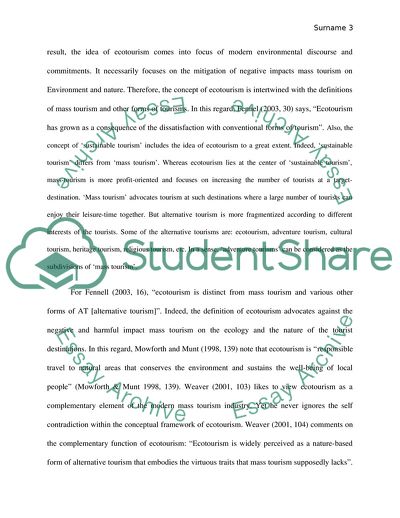Cite this document
(A Critical Analysis of the Concepts of Sustainable Tourism and Geotourism Essay Example | Topics and Well Written Essays - 2000 words, n.d.)
A Critical Analysis of the Concepts of Sustainable Tourism and Geotourism Essay Example | Topics and Well Written Essays - 2000 words. https://studentshare.org/tourism/1797179-sustainable-tourism-essay
A Critical Analysis of the Concepts of Sustainable Tourism and Geotourism Essay Example | Topics and Well Written Essays - 2000 words. https://studentshare.org/tourism/1797179-sustainable-tourism-essay
(A Critical Analysis of the Concepts of Sustainable Tourism and Geotourism Essay Example | Topics and Well Written Essays - 2000 Words)
A Critical Analysis of the Concepts of Sustainable Tourism and Geotourism Essay Example | Topics and Well Written Essays - 2000 Words. https://studentshare.org/tourism/1797179-sustainable-tourism-essay.
A Critical Analysis of the Concepts of Sustainable Tourism and Geotourism Essay Example | Topics and Well Written Essays - 2000 Words. https://studentshare.org/tourism/1797179-sustainable-tourism-essay.
“A Critical Analysis of the Concepts of Sustainable Tourism and Geotourism Essay Example | Topics and Well Written Essays - 2000 Words”. https://studentshare.org/tourism/1797179-sustainable-tourism-essay.


